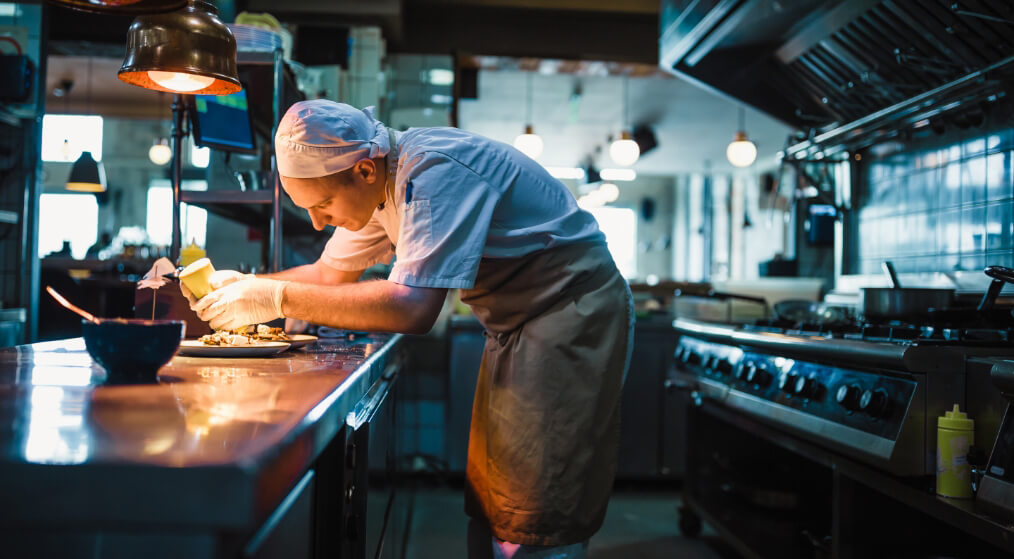Kitchen Safety Strategies
From hot appliances and sharp tools to spills or fire hazards, restaurants face various safety concerns. Those who run restaurants have a significant responsibility to ensure the safety of staff and guests. Implementing proper safety protocols lessens the chances of injury or illness.
Why Is Kitchen Safety Important?
Restaurant kitchens face various hazards, including:
- Sharp knives
- Hot oil
- Grills
- Fryers
- Fires
- Spills
- Health risks
These hazards can endanger staff and guests if not dealt with properly. The risks may lead to injury and illness, which are costly for restaurants due to compensation charges and lost productivity.
Reducing Safety Hazards Within Your Restaurant Kitchen
Kitchen safety protects people and reduces losses restaurants may endure. Here are a few aspects of a proper kitchen safety plan.
Following Fire Safety Protocols
Restaurants have hot oil, fryers and grills, which can cause burns or start fires. Improve fire safety by teaching staff to wear protective gear like heat-resistant clothing, carry hot items with pot holders, properly dispose of hot oil and practice safety near hot equipment to reduce burns.

You may also face fire and chemical hazards in the kitchen due to cleaning supplies. Store these liquids in their original packaging in a ventilated area far from any flame sources. Teaching your staff how to respond to a fire with proper evacuation techniques is vital, as well.
Creating Emergency Response Plans
A kitchen should have clear response plans for most common emergencies, including floods, electrical outages, contaminated water or fires. Document these plans and teach staff the proper procedure for each scenario to improve safety.
Preventing Common Kitchen Injuries
Kitchen workers face various injuries, including falls from spilled oil or water and cuts from knives. Prevent falls in the kitchen with nonslip shoes and proper procedures for cleaning grease spills. Use signs for spills or wet floors to alert staff and visitors to the dangers.
You can also prevent cuts in the kitchen by teaching knife safety. Instruct employees how to use a knife properly and encourage them to carry knives with the point facing down to avoid injuring others.
Implementing Effective Waste Management
Proper waste management protects the health of customers and staff. Waste management includes safe disposal of grease and maintaining grease traps so that they don’t overflow or back up. Overflows and backups create unsanitary conditions in restaurants.
Beyond implementing proper waste disposal for oil, you should maintain clean, sturdy bins with secure lids and labels to dispose of other kitchen waste.
Elevate Your Kitchen’s Safety and Sustainability Today
At Baker Commodities, we provide various services to support safety and sustainability in restaurant spaces, including used oil removal and preventive maintenance of grease traps. Contact us online to get more details about our services.



